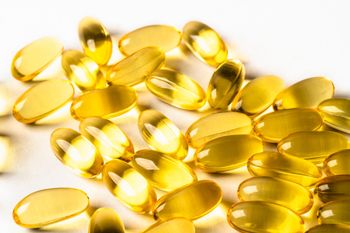
- Nutritional Outlook Vol. 22 No. 6
- Volume 22
- Issue 6
Synthetic ingredients’ regulatory uncertainty still a huge problem for dietary supplements, whether in Amarin’s omega-3 drug battle or in NDI guidance
Amarin Pharma’s recent comments advising FDA not to allow synthetic omega-3 supplements to be dietary supplements is just one more case in which synthetic supplement ingredients are under fire.
FDA’s refusal to consider certain synthetic ingredients as dietary ingredients remains one of the big struggles the dietary supplement industry faces today.
In 2016, FDA wrote in its revised new dietary ingredient (NDI) draft guidance that a synthetic copy of a botanical or herb does not, in the agency’s eyes, qualify as a dietary ingredient. This opinion relates specifically to synthetic botanical ingredients; FDA recognizes synthetic vitamins, minerals, and amino acids as legal dietary ingredients under the Federal Food, Drug, and Cosmetic Act.
FDA’s stance on synthetic botanicals is as problematic and unresolved today as it was for the industry
Then there are those, such as omega-3 drug firm Amarin Pharma, who argue that certain synthetic ingredients should not be considered dietary ingredients. Amarin’s FDA-approved prescription drug, Vascepa, contains a purified, highly concentrated source of omega-3 fatty acid eicosapentaenoic acid (EPA) in ethyl ester form. In its
Any high-concentration EPA ethyl ester ingredients being sold as dietary supplements are synthetically produced, Amarin wrote. The company argued that these ingredients do not meet the legal definition of a dietary ingredient and that they “are unlawful synthetic copies or slightly altered versions of branded and generic drugs, and they have evaded the ‘new drug’ approval process.” It went as far as to say that FDA should “exclude synthetic substances related to natural products from the definition of ‘dietary ingredient,’ unless those substances have been commonly/customarily, and lawfully used in conventional food…”
Amarin argued that FDA should remove these “unapproved new drugs” from the market because they “distract patients from seeking medical attention, and if appropriate, obtaining treatment with proven drug therapies…” Another concern, it said, is that these synthetic supplement products may not carry the same side-effect warnings and precautions for use that FDA requires on drugs, and they may be sold “without the safety and effectiveness data required for FDA drug approval,” the company wrote.
If an omega-3 dietary supplement were equivalent in nature to a drug product that has been shown to be safe, would that supplement inherently present a risk to human health? What is clearer is the concern that high-concentration omega-3 supplements stand to undercut omega-3 drugs. Amarin was frank about this, noting in its comments that these supplement ingredients “undermine incentives for legitimate drug manufacturers to invest in drug development” and that “purported dietary supplement companies that unlawfully bypass the ‘new drug’ approval process are…able [to] avoid the costs and risks associated with drug development…”
Amarin warned, in its FDA comments, that it plans to file a
Amarin shows no sign of scaling back its fight to keep synthetic omega-3 supplements off the market. And while it’s uncertain today where FDA’s decision on synthetic botanical ingredients will ultimately land, does Amarin’s argument against synthetic omega-3 supplements stand to influence the agency’s opinion on synthetic botanical supplements?
There are no answers yet, but what we know is that the supplement industry will continue keeping a watchful eye on Amarin’s actions, even as industry leaders continue to communicate with FDA on how supplement regulations, and definitions, should be changed.
Amarin Pharma did not offer further comments for this story.
Jennifer Grebow
Editor-in-Chief
Articles in this issue
about 6 years ago
Protein bar evolution: The latest in protein and dairy advancementsover 6 years ago
Grains: What’s old is new againover 6 years ago
Eye health science and supplements: The long viewover 6 years ago
Astaxanthin for immune health, brain health, and male fertility?over 6 years ago
Medium-chain triglycerides are in high demand. Here's why.over 6 years ago
Can blockchain save dietary supplement industry transparency?Newsletter
From ingredient science to consumer trends, get the intel you need to stay competitive in the nutrition space—subscribe now to Nutritional Outlook.





